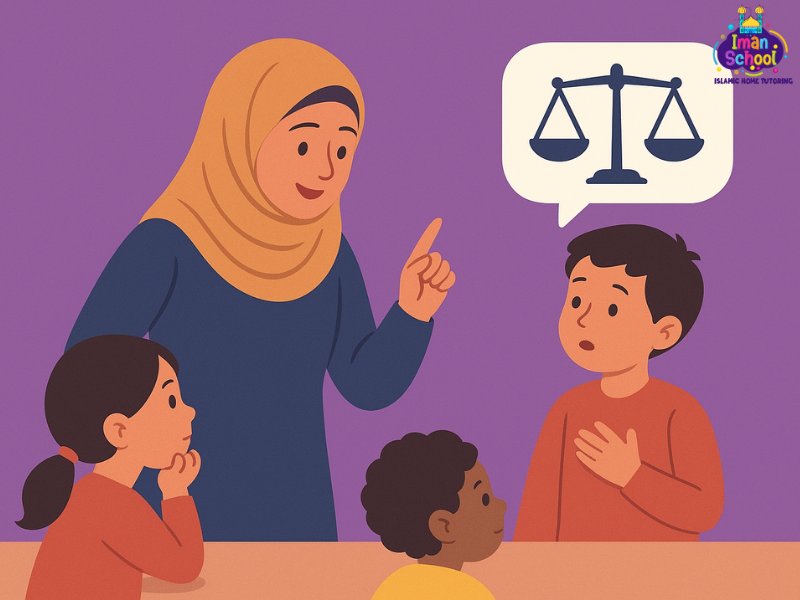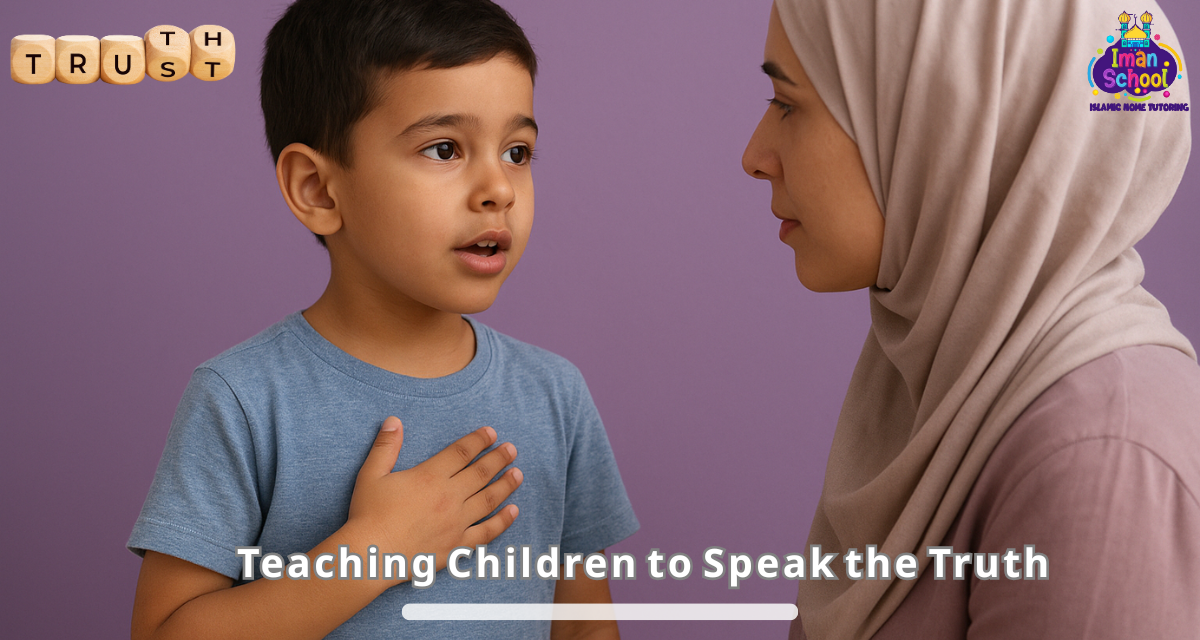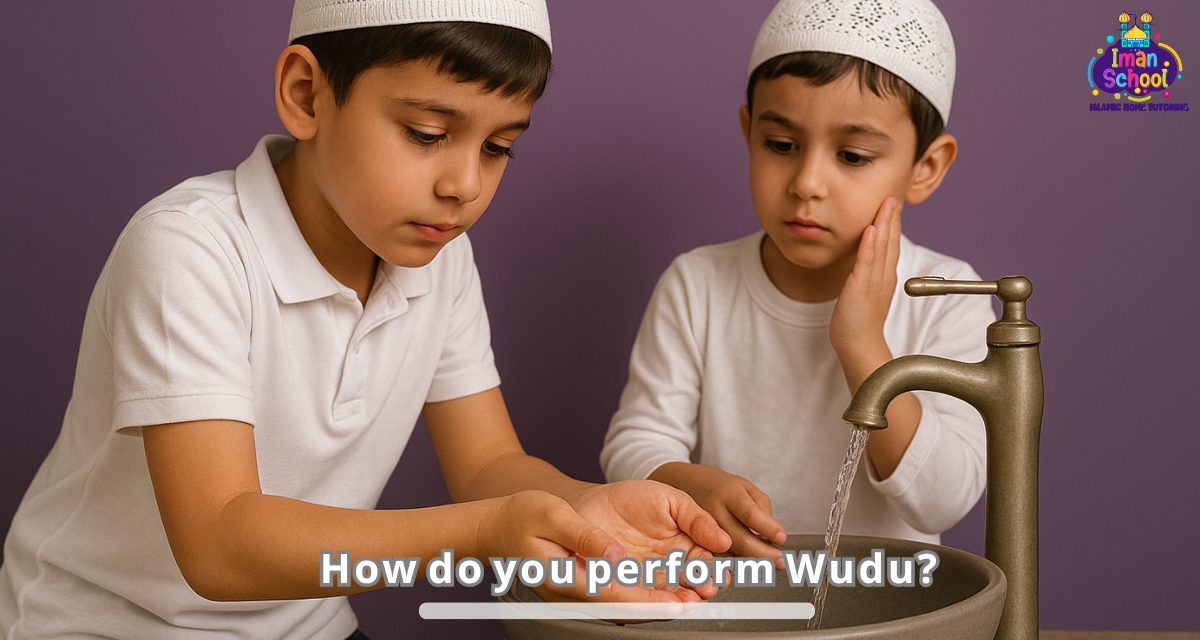Every parent aims to raise a child who is morally grounded, trustworthy, and brave enough to face consequences. At the heart of this aspiration is honesty. But raising truthful children is a process, not a destination. If you are struggling with a child who bends the facts, you are likely asking: "Teaching Children to Speak the Truth: Where do I start, and how do I handle the inevitable lies with grace and effectiveness?" The goal is to instill integrity, the courage to tell the truth even when it's hard.
Teaching Children to Speak the Truth: Why is Honesty Important?
The foundation of any healthy relationship, whether with parents, siblings, or future colleagues, is trust. Teaching Children to Speak the Truth is essential for their social and moral development because:
-
Builds Trust: Truthfulness is the only way a child learns how to build trust with child and parent. When trust is established, the child feels safe to admit mistakes.
-
Develops Integrity: Honesty forms the core of teaching integrity to children, allowing them to grow into adults who align their words with their actions.
-
Reduces Fear: When a child learns that telling the truth, even about a mistake, is met with support (or fair consequence) rather than explosion, they stop resorting to kids lying out of fear.
-
Fosters Reality: It helps the child distinguish between reality and fantasy, a key part of child development and lying.

When Do Children Start Lying, and Why?
The journey from innocence to bending the truth is a normal part of child development and lying. Understanding why do children lie is the first step in effective parenting.
-
Age 3-4 (The Dawn of Deception): This is often when toddler lying behavior begins. This is less about malice and more a sign of advanced cognitive development; they now understand that you don't know what they know. Lies are often clumsy or obvious.
-
Lying Out of Fear: They fear punishment for an original misdeed (e.g., breaking a vase), which is the primary driver behind kids lying out of fear.
-
Lying for Gain: They lie to get something they want (e.g., claiming they finished their homework).
-
Lying to Protect Others: They lie to save a sibling or friend from trouble.
Read more: How To Become A Better Muslim
How to Model Honesty: What Should Parents Avoid Doing?
The most powerful tool for Teaching Children to Speak the Truth is modeling the behavior you wish to see. Children are always watching. How to model truthfulness requires constant vigilance on the part of the parent.
Parents should actively avoid these behaviors:
Avoid Telling "White Lies"
Saying what is a white lie for kids (e.g., "Tell the caller I'm not home" or "I only bought one toy") sends a mixed message. It teaches the child that lying is acceptable when convenient or when it avoids minor social discomfort. Does telling "white lies" around my children affect their sense of truth? Absolutely, it normalizes deception.
Avoid Empty Threats
Saying, "If you don't clean this up, I'm throwing all your toys away," is dishonest if you have no intention of following through. It trains the child to discount your words.
Avoid Emotional Manipulation
Faking tears or exaggerated disappointment to coerce obedience is a form of emotional dishonesty. It teaches the child that emotion is a tool for control, not genuine expression.
Avoid Shifting Blame
Never blame an object or another person for your own mistakes. Own your errors openly ("I forgot to set the alarm, and I apologize").

Discover now: Online Quran Programs
Teaching Children to Speak the Truth: Should I Punish a Lie?
This is one of the toughest dilemmas in parenting tips for honesty. The answer is often subtle: Focus the punishment on the original misdeed, not the lie itself.
When addressing consequences for lying in children, your goal is to make the truth the easier path.
-
Focus on the Core Issue: If your child broke a dish, the consequence should be helping to clean up the mess or losing a privilege related to the dish.
-
Acknowledge the Lie Separately: The conversation should be: "I am disappointed that the dish broke. The consequence is cleaning up. I am more disappointed that you chose to lie to me because lying breaks trust. We need to work on how to talk to kids about honesty so you feel safe telling me the truth."
-
Keep Punishments Fair: Disproportionate punishment for a small offense encourages a big lie to cover it up. A measured response to the original deed is key to how to handle a child's lie.
What is the Difference Between Lying and Fantasy in Young Kids?
Parents must distinguish between malicious lies and the creative imagination often found in a preschooler telling tall tales.
Fantasy (Ages 2-5)
When a child claims, "A dragon ate my sandwich," this is part of their active imagination. They are exploring language, creativity, and narrative. In this case, simply acknowledge their story ("That sounds like a fun, silly story!") without validating it as fact.
This behaviour is normal, and it is crucial to recognize that is it normal for a four-year-old to lie, or is it a serious problem? Often, it is just normal development, not a serious character flaw.
Lying (Intentional Deception)
This occurs when the child knows the truth and purposefully tries to manipulate reality to avoid a consequence or gain an advantage. This is the behavior that requires correction and focused effort in raising honest children.
Learn more: Meaning of Surah Ikhlas
How to React Calmly When Your Child Tells a Hard Truth?
The single most effective strategy for Teaching Children to Speak the Truth is controlling your reaction.
When your child finally tells a difficult truth (e.g., they cheated on a test or sneaked out):
-
Prioritize the Courage: Stop your immediate emotional reaction. Take a deep breath.
-
Affirm the Truth-Telling: Say, "Thank you for telling me the truth. I know that was very hard to do, and I appreciate your courage." This is a crucial step in rewarding honesty in children.
-
Separate the Issue: Address the original mistake calmly after the initial affirmation. This models the exact behavior you want them to adopt: honesty is always met with less anger than deception. This teaches the child how to teach honesty to kids by making the truth less scary.

Teaching Children to Speak the Truth: Best Games and Stories to Use?
Stories and games are excellent tools for teaching good values to children without confrontation. Look for the best books about honesty for kids that clearly show the positive outcome of telling the truth and the negative consequences of lying (not punishment, but social or emotional fallout).
-
The Story Game: Present a scenario: "A boy broke a toy and his dad asked what happened. What are two choices the boy can make, and what might happen next in each scenario?" Guide the child to predict the outcomes of honesty versus lying.
-
Role-Playing: Use puppets or toys to act out scenarios where one character lies and one tells the truth, emphasizing the feeling of relief that comes with being honest.
Honesty in the Qur'an and Sunnah: The Divine Command
The most powerful motivation for Teaching Children to Speak the Truth is anchoring the concept in their faith. Honesty (Sidq) is not just a social virtue in Islam; it is a fundamental pillar of character and a command from Allah. Sharing these sources reinforces the seriousness of this quality:
From the Qur'an: Allah commands the believers to be with the truthful ones:
"O you who have believed, fear Allah and be with the truthful." (Qur'an 9:119)
This verse elevates truthfulness to a prerequisite for piety (Taqwa) and companionship with those who are sincere.
From the Sunnah: The Prophet Muhammad (peace be upon him) linked truthfulness directly to righteousness and ultimately, Paradise:
"Truthfulness leads to righteousness, and righteousness leads to Paradise. And a man keeps on telling the truth until he becomes a truthful person. Falsehood leads to wickedness, and wickedness leads to the (Hell) Fire, and a man may keep on telling lies till he is written before Allah as a liar." (Sahih Al-Bukhari)
This profound Hadith teaches children the long-term spiritual consequence of their words, showing that being honest is a lifestyle that shapes their identity.
See details: Learn Noorani Qaida Online
How to Praise Honesty: Simple Ways to Reward Truthfulness?
Rewarding honesty in children does not mean giving material gifts; it means giving sincere, meaningful acknowledgement.
-
Use specific, descriptive praise: "I am so proud that you used your voice and told me the truth about the missing cookie. That shows a lot of maturity and courage."
-
Connect honesty to trust: "Because you were honest, I trust you completely on this. That is the most important thing."
-
Give a non-material reward: Offer extra one-on-one time, or a special activity as a reward for their courage.
What to Say When You Catch Your Child in a Lie?
When you catch your child, confrontation is necessary, but it must be done calmly and firmly. What is the best way to respond when I know my child is lying?
-
Avoid the Accusation: Don't start with, "Did you do this?" when you already know the answer. This traps the child and encourages them to lie again.
-
State the Fact and the Expectation: Say, "I know the dog didn't eat the last piece of cake. I saw you take it. The rule in our family is that we tell the truth because the truth keeps our family strong. What is the truth about the cake?"
-
The Follow-Up: Once the child tells the truth, proceed to a fair consequence for the original mistake, and reiterate your love and trust in them to make the right choice next time.

FAQs about Teaching Children to Speak the Truth
What is the best way to respond when I know my child is lying?
State the known facts calmly and ask for the truth, focusing on the importance of honesty for trust, rather than setting a trap. Separate the punishment for the lie from the punishment for the misdeed.
Is it normal for a four-year-old to lie, or is it a serious problem?
Is it normal for a four-year-old to lie, or is it a serious problem? It is entirely normal for preschooler telling tall tales and making up stories. It only becomes a serious problem if the pattern continues into older childhood without intervention, especially if the child is consistently kids lying out of fear.
Does telling "white lies" around my children affect their sense of truth?
Does telling "white lies" around my children affect their sense of truth? It teaches them that honesty is conditional and situational, undermining the absolute value of teaching integrity to children. Avoid them completely.
Should the punishment for the lie be separate from the punishment for the original misdeed?
Yes, the consequence for the lie should be separate and focused on repairing trust (e.g., extra chores, writing a note of apology). This helps the child understand that while the original misdeed has a consequence, lying has a worse consequence because it breaks the bond of how to build trust with child.
How can I teach my child to tell the truth even when they are afraid of the consequences?
Practice rewarding honesty in children consistently by minimizing your reaction to the mistake and maximizing your praise for their courage in telling the truth. This is the only way to counteract the instinct to hide.
Know more: Online Quran Education for Children
Teaching Children to Speak the Truth: How Can I Build Long-Term Trust?
For comprehensive guidance on raising honest children through faith-based ethics and practical techniques rooted in the Quran and Sunnah, you need structured support. Iman School is a dedicated online educational institution offering specialized Islamic parenting courses and ethics programs.
The most powerful answer to Teaching Children to Speak the Truth is to root their honesty in strong Islamic values.
Enroll in our family education courses today to build long-term integrity and trust with your children.




